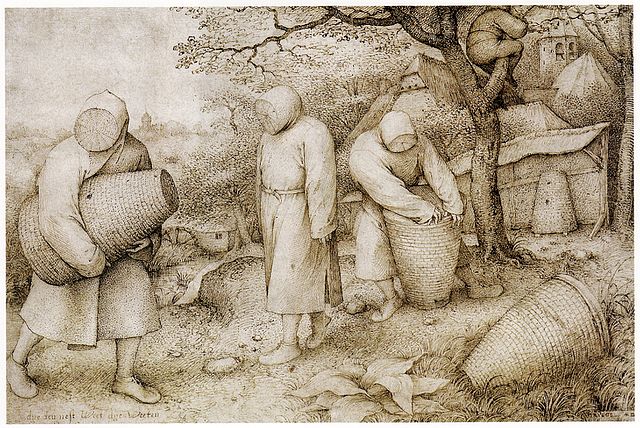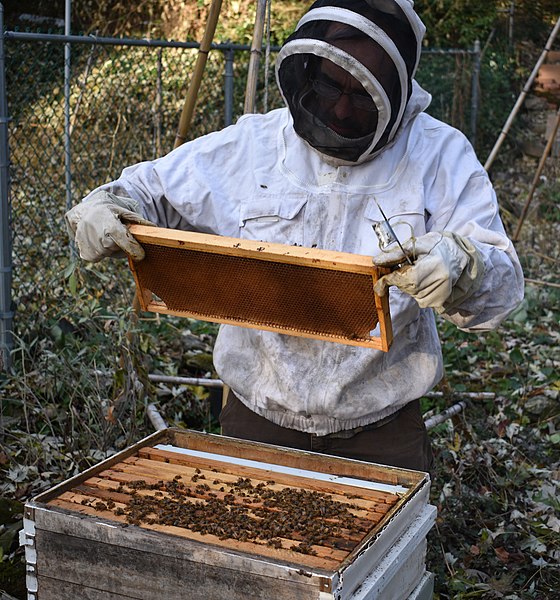An apiary is a location where beehives of honey bees are kept. Apiaries come in many sizes and can be rural or urban depending on the honey production operation. Furthermore, an apiary may refer to a hobbyist's hives or those used for commercial or educational usage. It can also be a wall-less, roofed structure, similar to a gazebo which houses hives, or an enclosed structure with an opening that directs the flight path of the bees.
An apiary in Warsaw, Poland.
Urban beekeeping with hay bales strapped to them on 3 sides to winterize and protect from the wind knocking it over
Apiary (Bienenhaus) in Upper Bavaria, Germany
Apiary in Bashkortostan, Russia
Beekeeping is the maintenance of bee colonies, commonly in man-made beehives. Honey bees in the genus Apis are the most commonly kept species but other honey producing bees such as Melipona stingless bees are also kept. Beekeepers keep bees to collect honey and other products of the hive: beeswax, propolis, bee pollen, and royal jelly. Other sources of beekeeping income include pollination of crops, raising queens, and production of package bees for sale. Bee hives are kept in an apiary or "bee yard".
Beekeeping, tacuinum sanitatis casanatensis (14th century)
The Beekeepers, 1568, by Pieter Bruegel the Elder
A beekeeper inspecting a hive frame from a Langstroth hive.
Honey-laden honeycomb in a wooden frame








